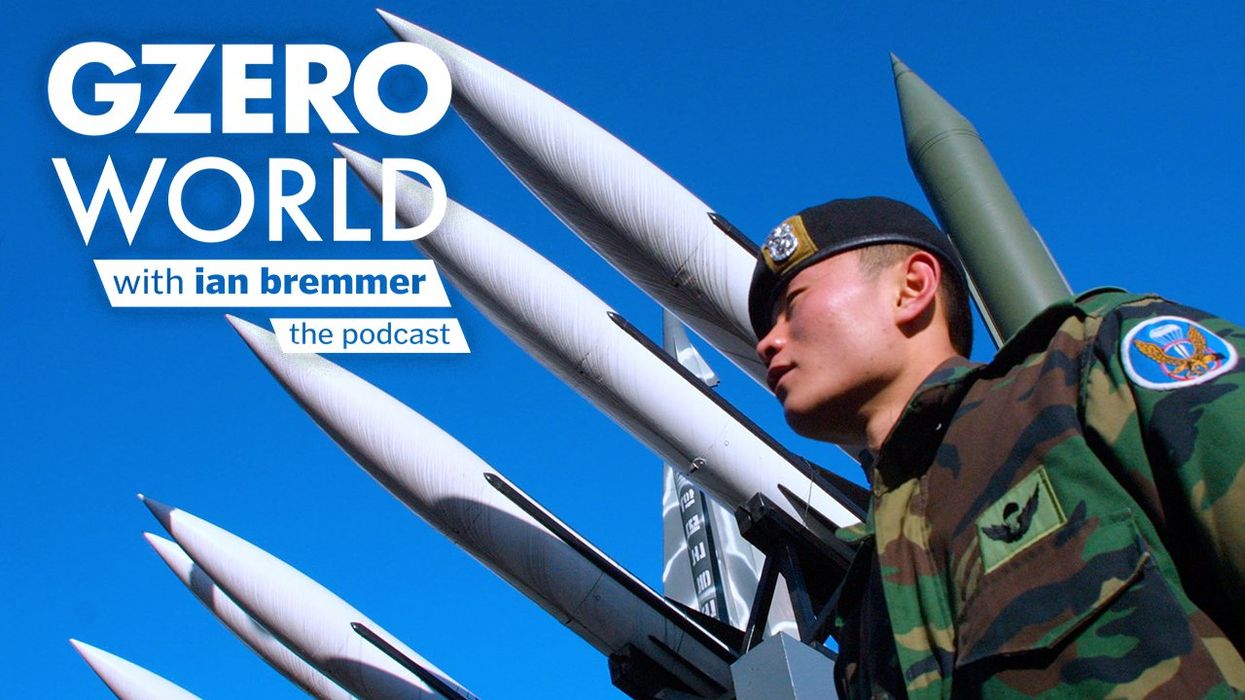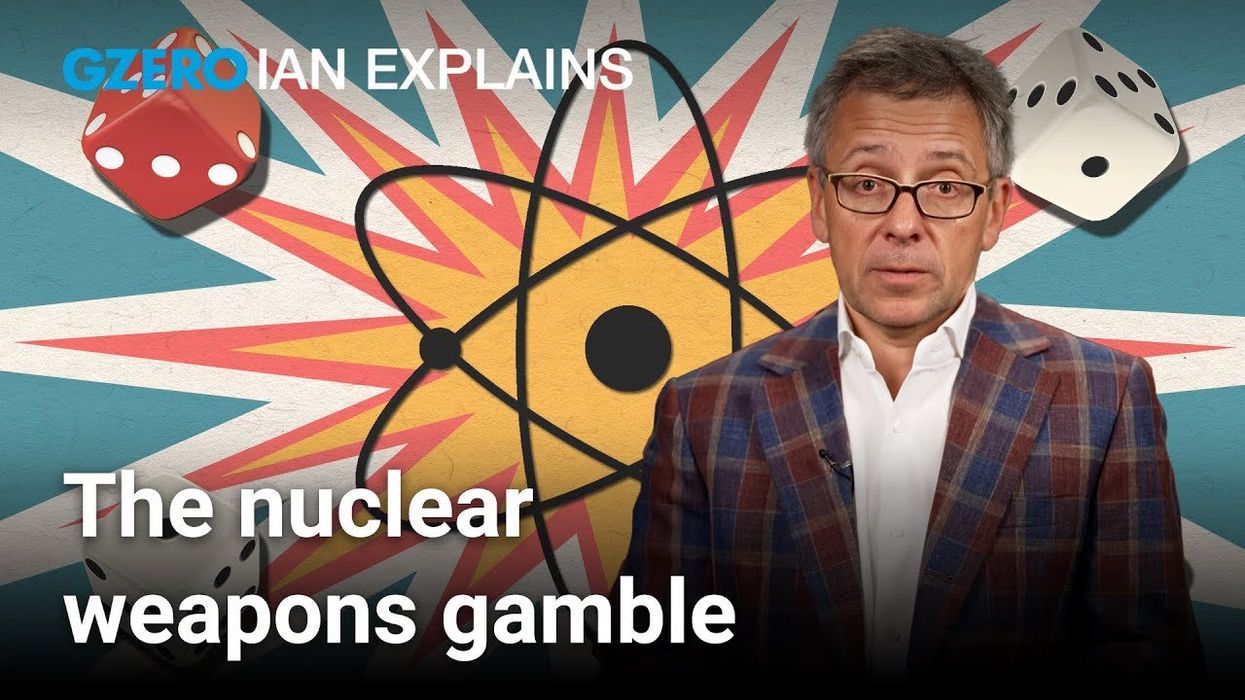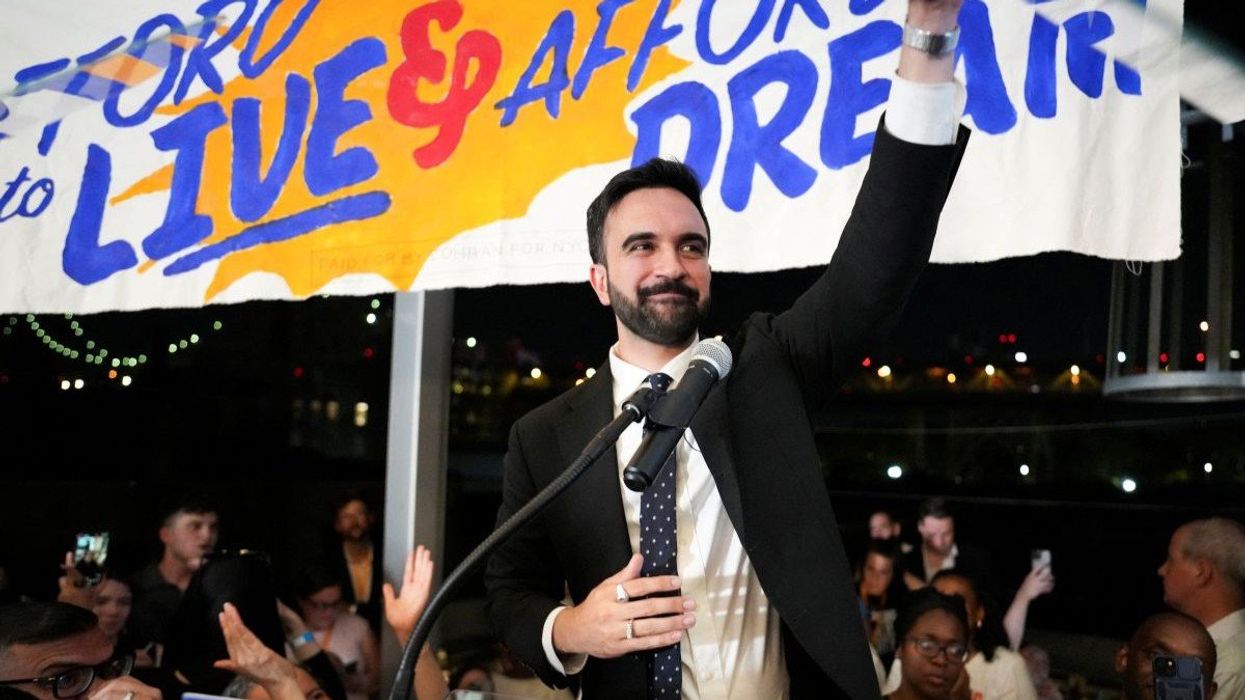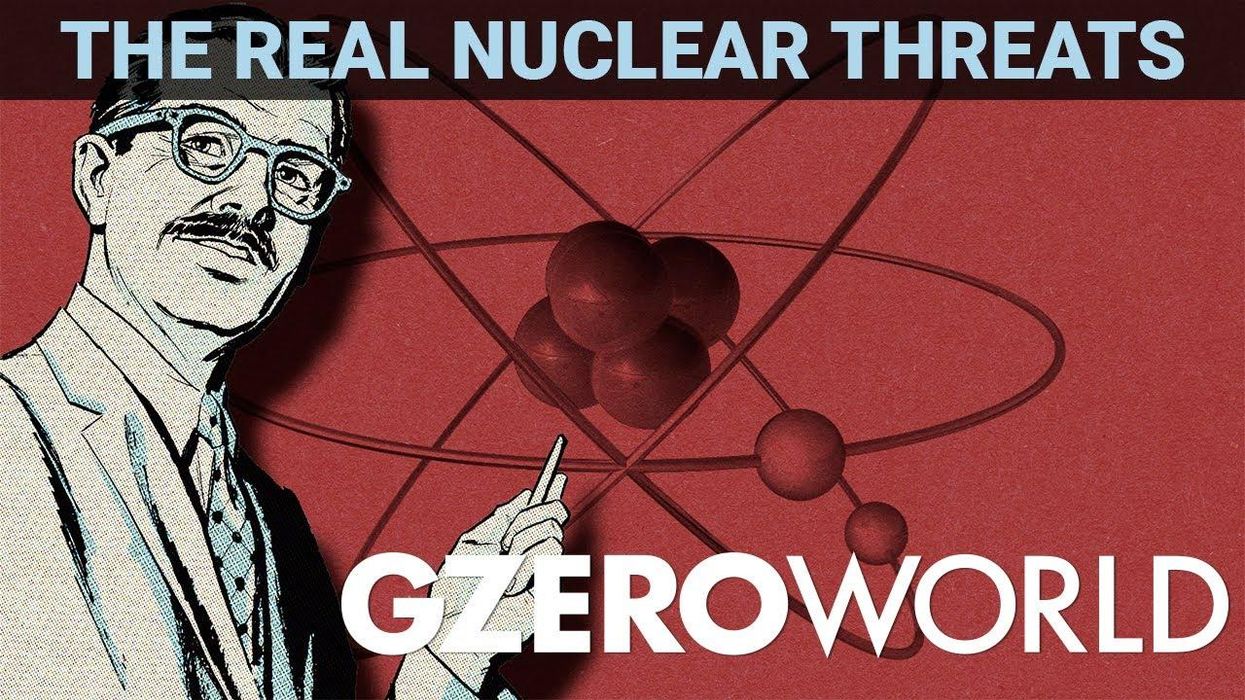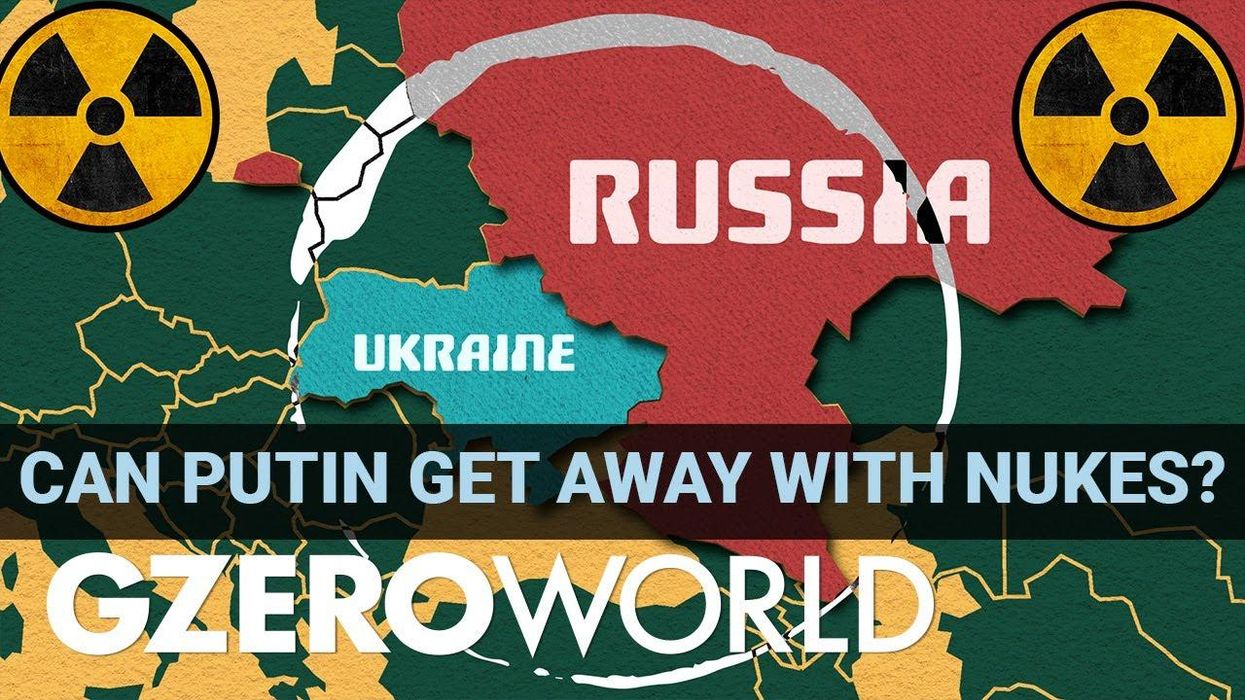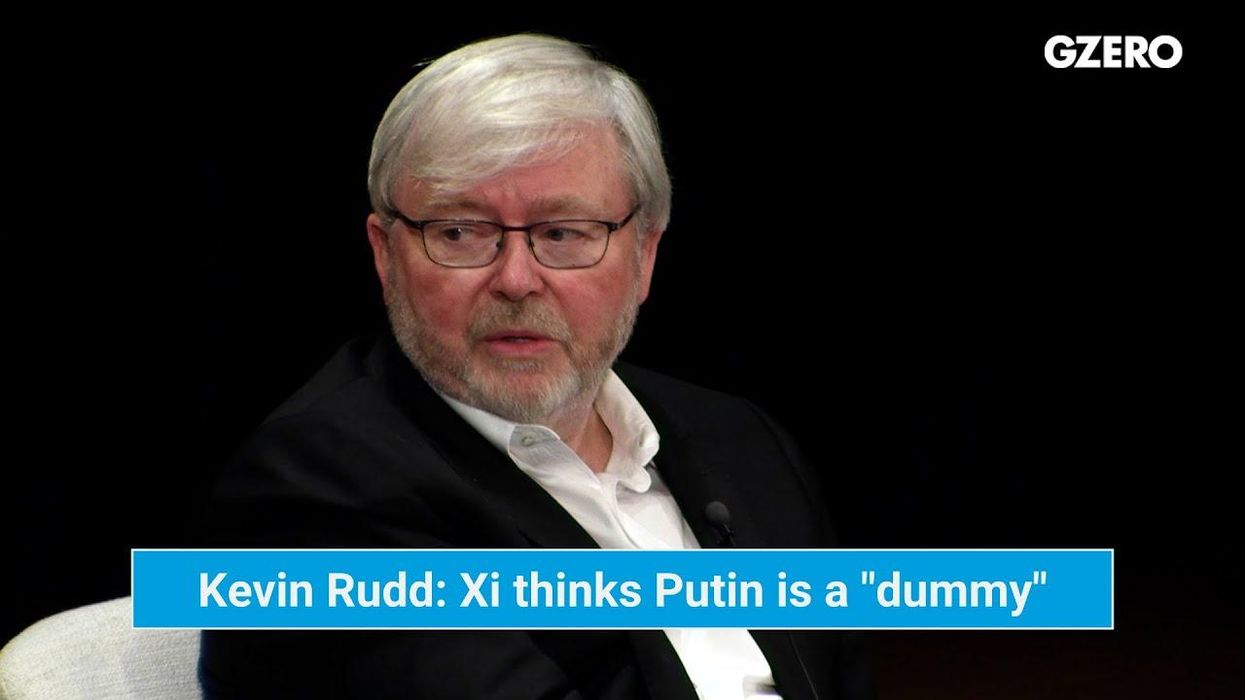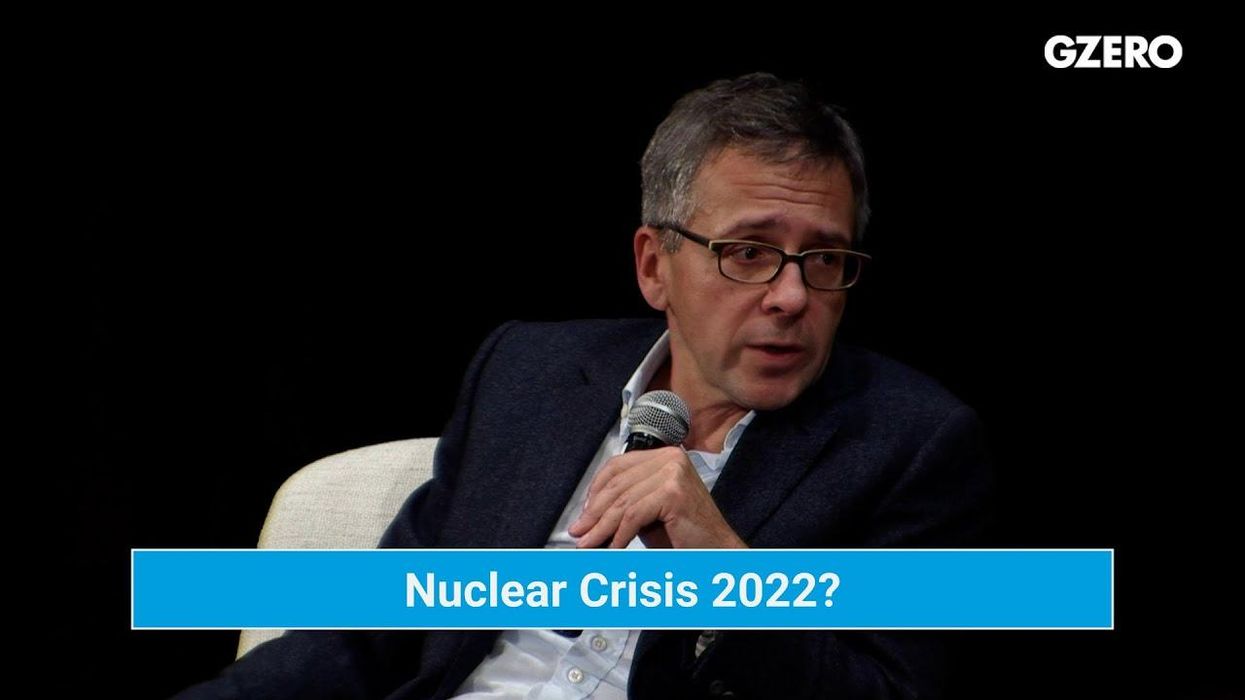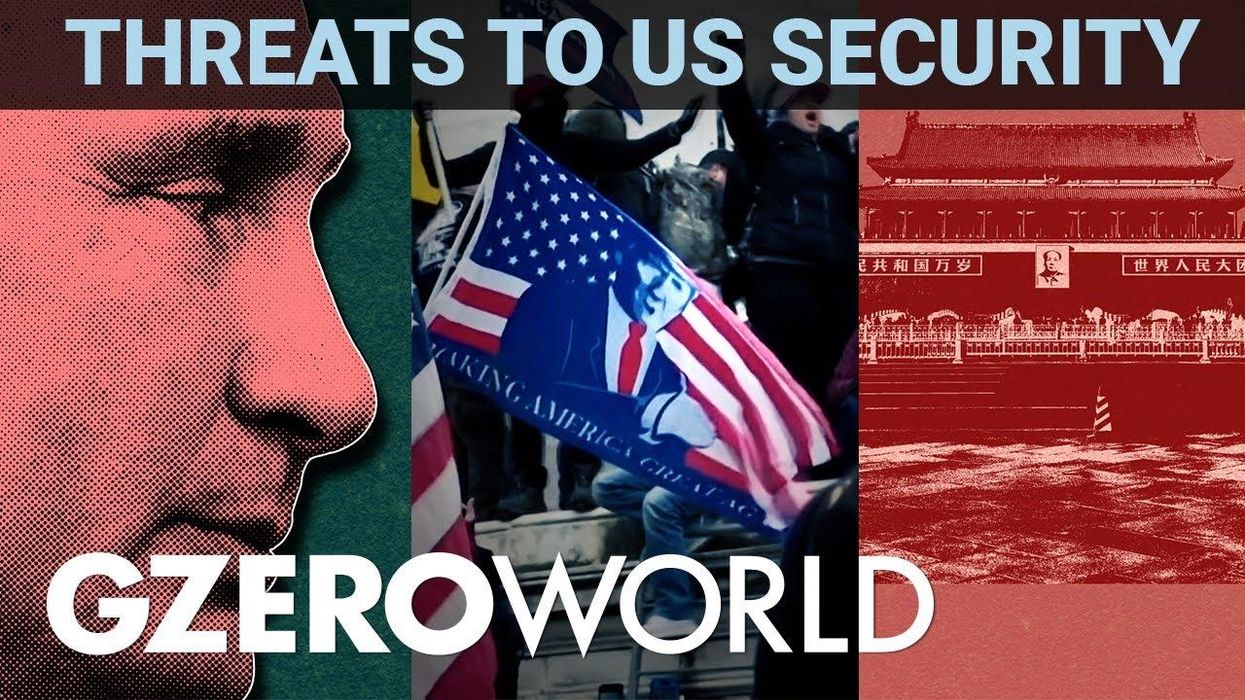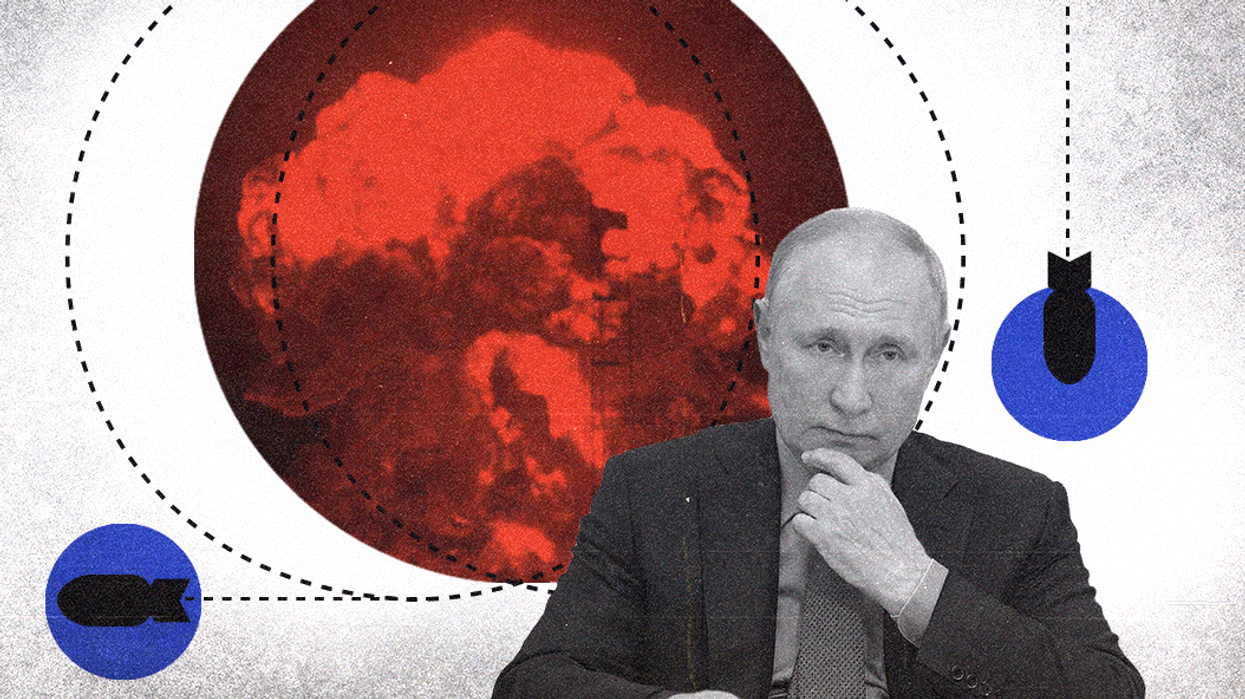GZERO World with Ian Bremmer
The dangerous new nuclear arms race
The world is entering a new nuclear era—one that’s more chaotic and dangerous than the last, raising the risk of catastrophe. Ian Bremmer discusses the growing nuclear risk with Admiral James Stavridis on the latest episode of GZERO World.
Jul 14, 2025

